A Sample Late Night Packet Script, with Notes
Let's mine some yuks from a foreign assassination

I’ve been getting a lot of questions about packets for late night shows. What do they look like? Do I have any tips? How did it feel to write an unsuccessful packet for Stevie TV, a VH-1 show based around a YouTube star that ran for 14 ignominious episodes in 2012? Allow me to answer the last question first: It didn’t feel great!
I’ve been through the packet process many times, sometimes successfully, often not.1 That process — as well as the actual jobs that were sometimes the end point of the process — taught me some things, which I’d like to share with any aspiring comedy writers. Below is a sample script written about the funniest event of the last decade: Tuesday’s assassination of Hamas leader Ismail Haniyeh. Which is the type of thing that you might be asked to write about if you submit a packet for a Daily Show—type show. I’m not joking: They’ve been known to pick dry topics to see who can squeeze comedy from a stone.
This script is mostly for a show in the Daily Show family of shows; my thoughts are probably less relevant to, say, Meyers or Maher. And FWIW, because writing for a specific “voice” is important, I chose to write for Jon Stewart’s voice — that guided my decisions in a few places. What’s below is a (short) “desk piece”; a common request for a first-round packet is two desk pieces and two pitches for other pieces (though it depends on the show). I hope you find this interesting and maybe even minimally funny.
I hope this was helpful! If this advice helps you get a writing job, please mail me 70 percent of your salary.
It’s true: I’ve submitted many more unsuccessful packets than successful ones. But that doesn’t bother me too much: Your packet is often one of hundreds that are submitted, so the odds are long.





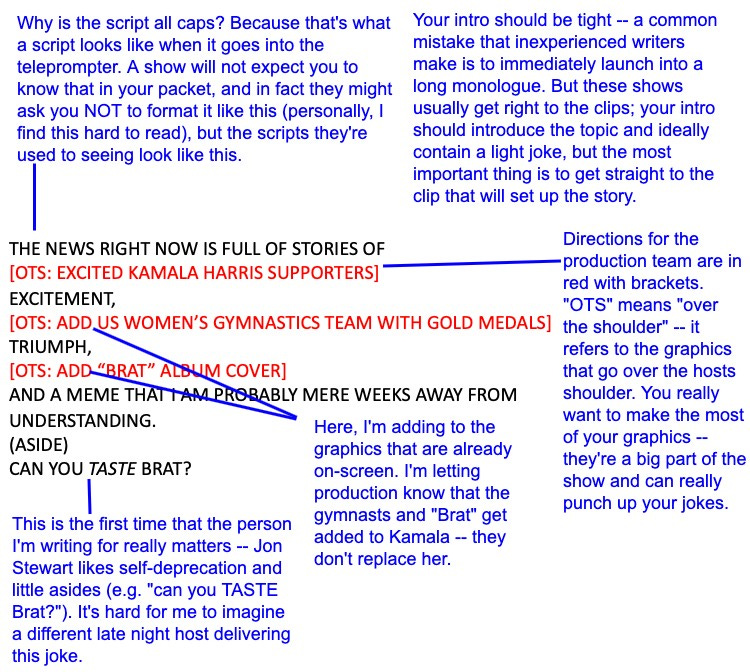
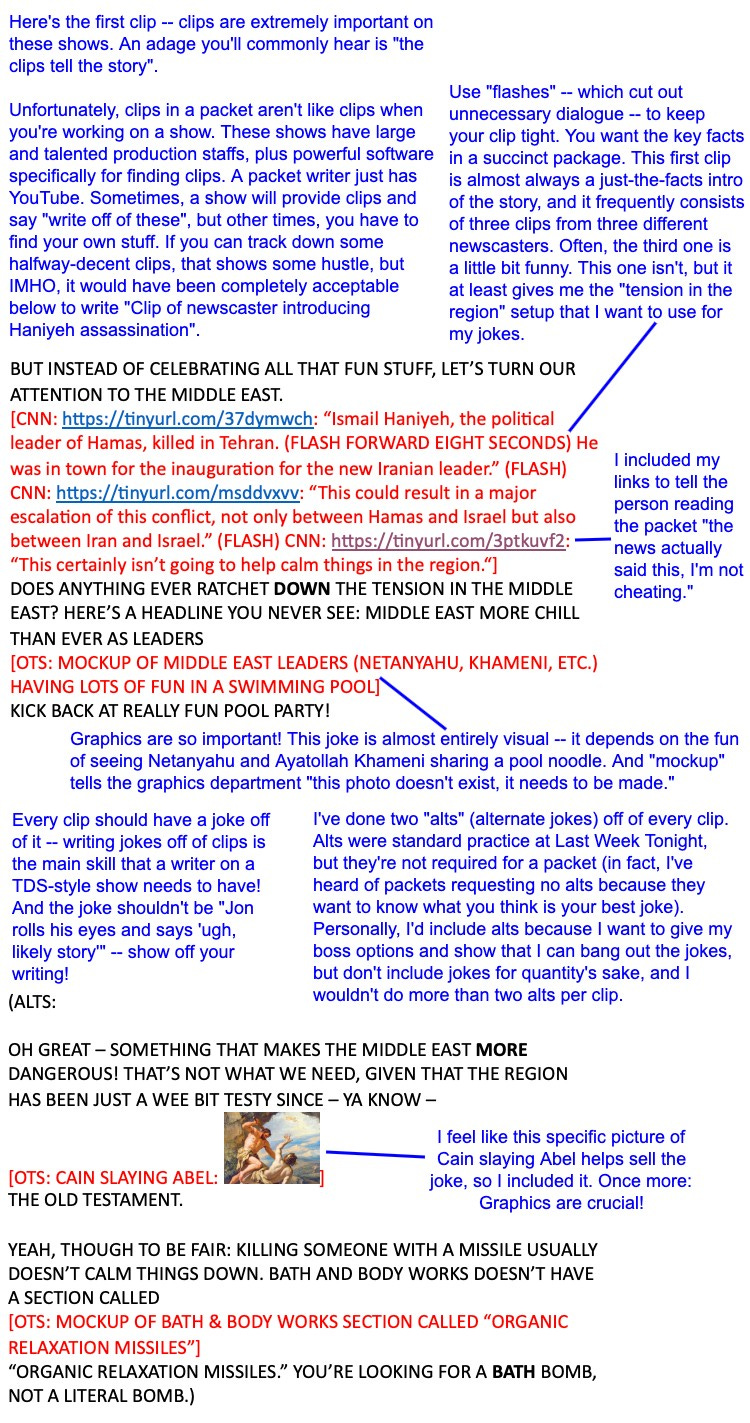
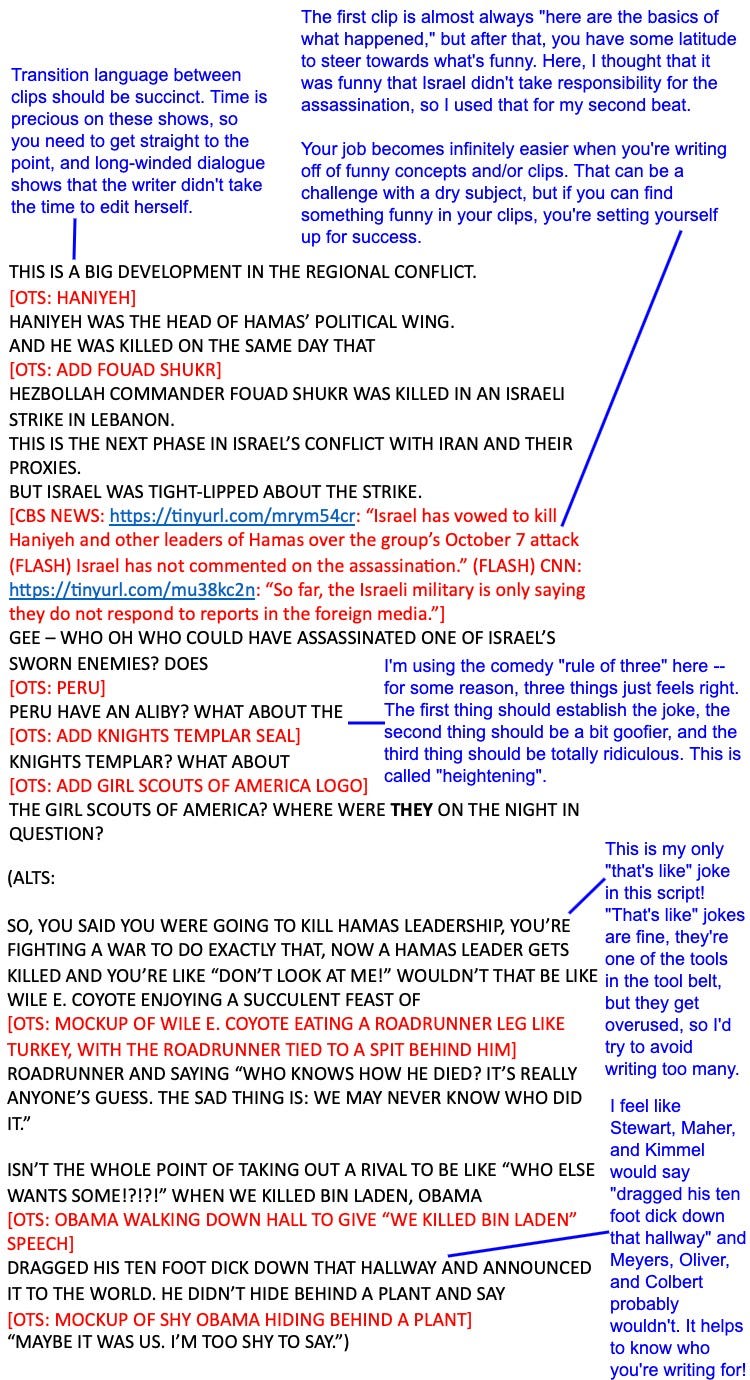
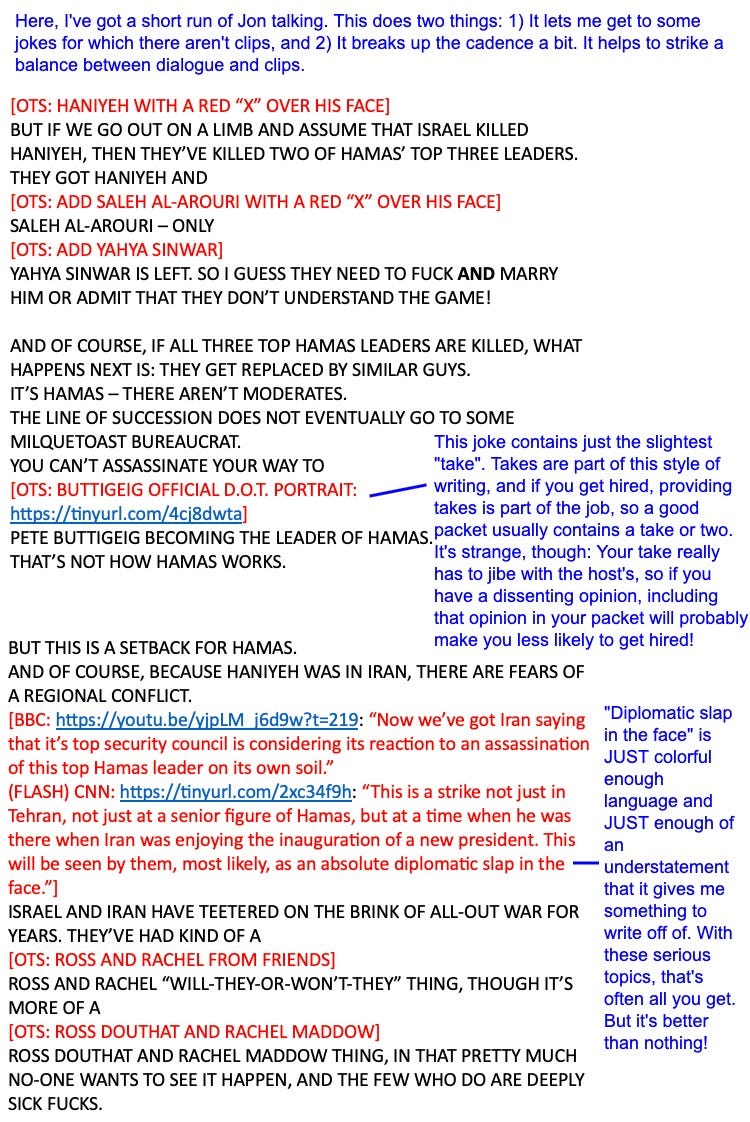
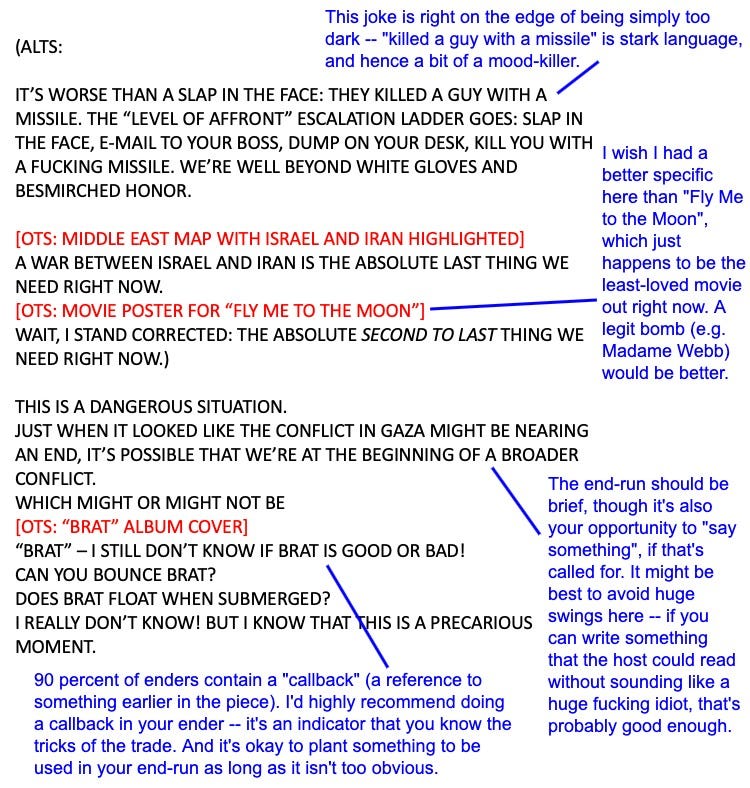


This comedy writing stuff looks like it takes hard work and talent.
And thanks for the Ross Douthat and Rachel Maddow joke. It’s just like what Aristotle (a big hit in the Athens Tonight writers’ room) had to say about metaphor: “by far the greatest thing . . . That alone cannot be learnt; it is the token of genius. For the right use of metaphor means an eye for resemblances.”
Interesting. To the extent that I ever imagined what the script writers do, I would have thought they wrote the jokes out in prose and that someone else did all this set-up stuff.